
Victoria Simpson
Current research has demonstrated that vegetarians and vegans are often targets of prejudicial attitudes and stereotyped as lacking masculinity. The extent to which adolescents hold such prejudicial views has yet to be subject to empirical testing. At this developmental stage, attitudes are still amenable to change. Therefore, establishing attitudes toward non-meat-eating outgroups during childhood is essential for facilitating attitude change before they become firmly established by adulthood. The present study examined primary-school-age children’s perceptions of others who follow omnivorous, vegetarian, and vegan diets, with the latter groups motivated either by taste or for moral reasons, i.e., concern for animals. Perceptions of sociability, morality and competence were measured for each target, in line with the Stereotype Content Model. Perceived masculinity was measured using items of the Feminine-Masculine Bipolar scale directed at each target. It was observed that 7- to 11-year-old children do hold ambivalent stereotypes of non-meat-eating groups, evaluating the vegan and morally motivated vegetarian higher for morality, but lower in competence than the omnivorous target. The vegan and morally motivated vegetarian were also perceived to be less masculine. These findings have implications for understanding how children develop stereotypes for non-meat-eating groups and add to a growing literature finding prejudice towards social norm challenging others.

Victoria Simpson


For the environment

Your health

Human and non-human animals alike...



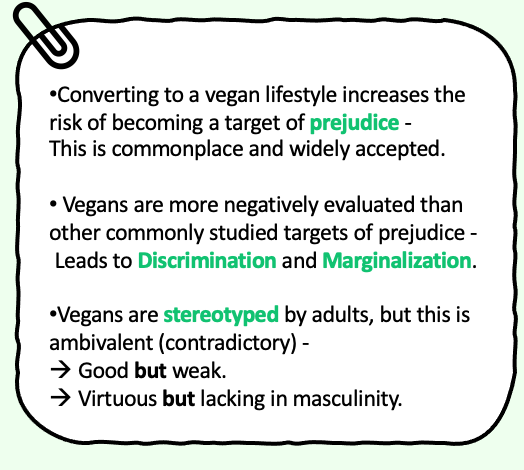










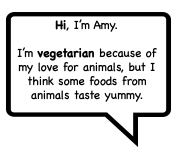

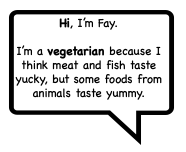

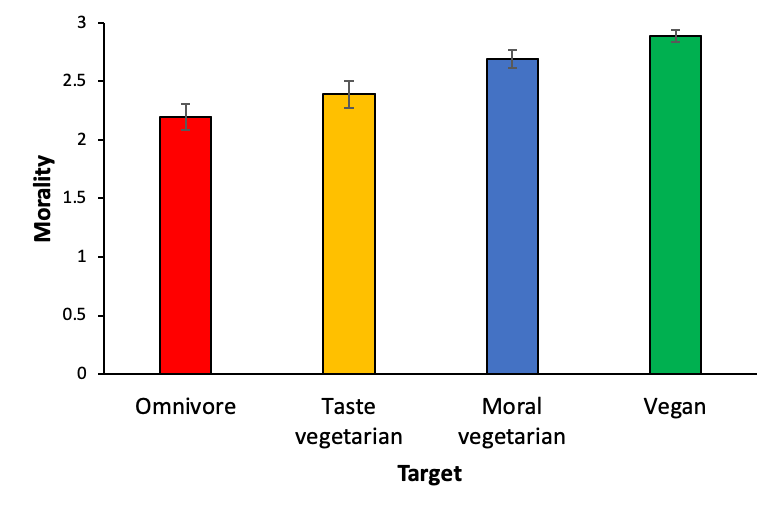
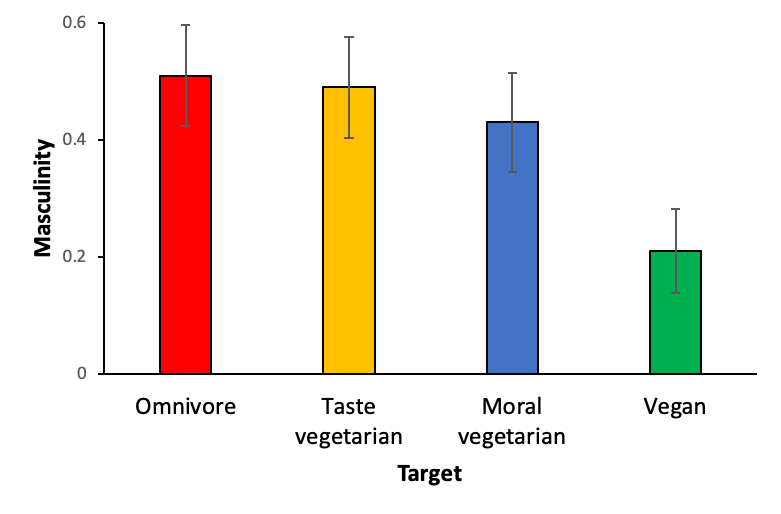

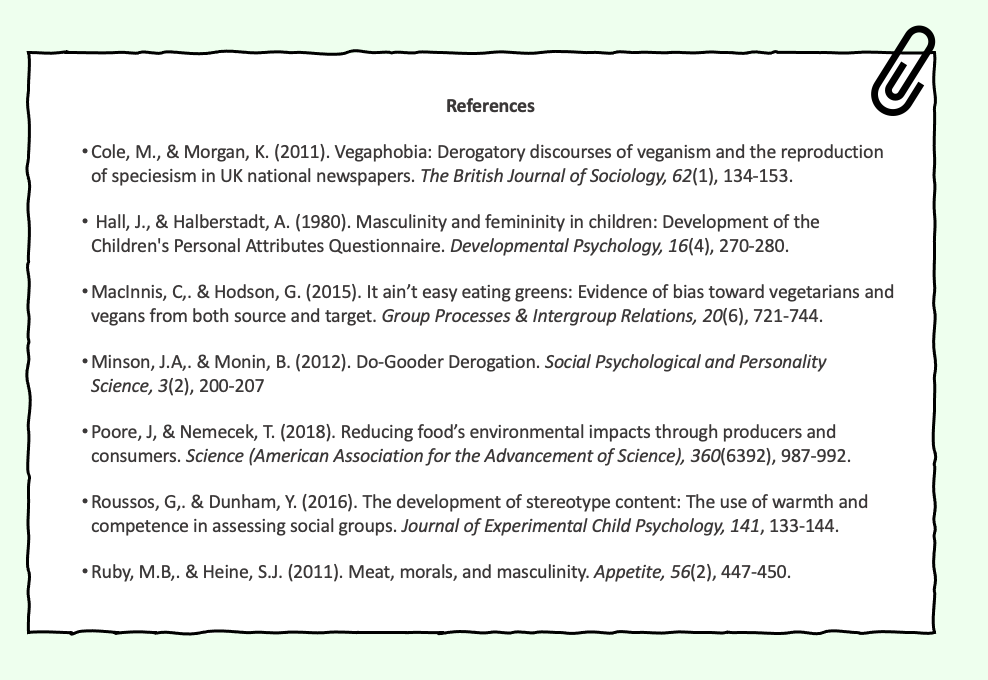


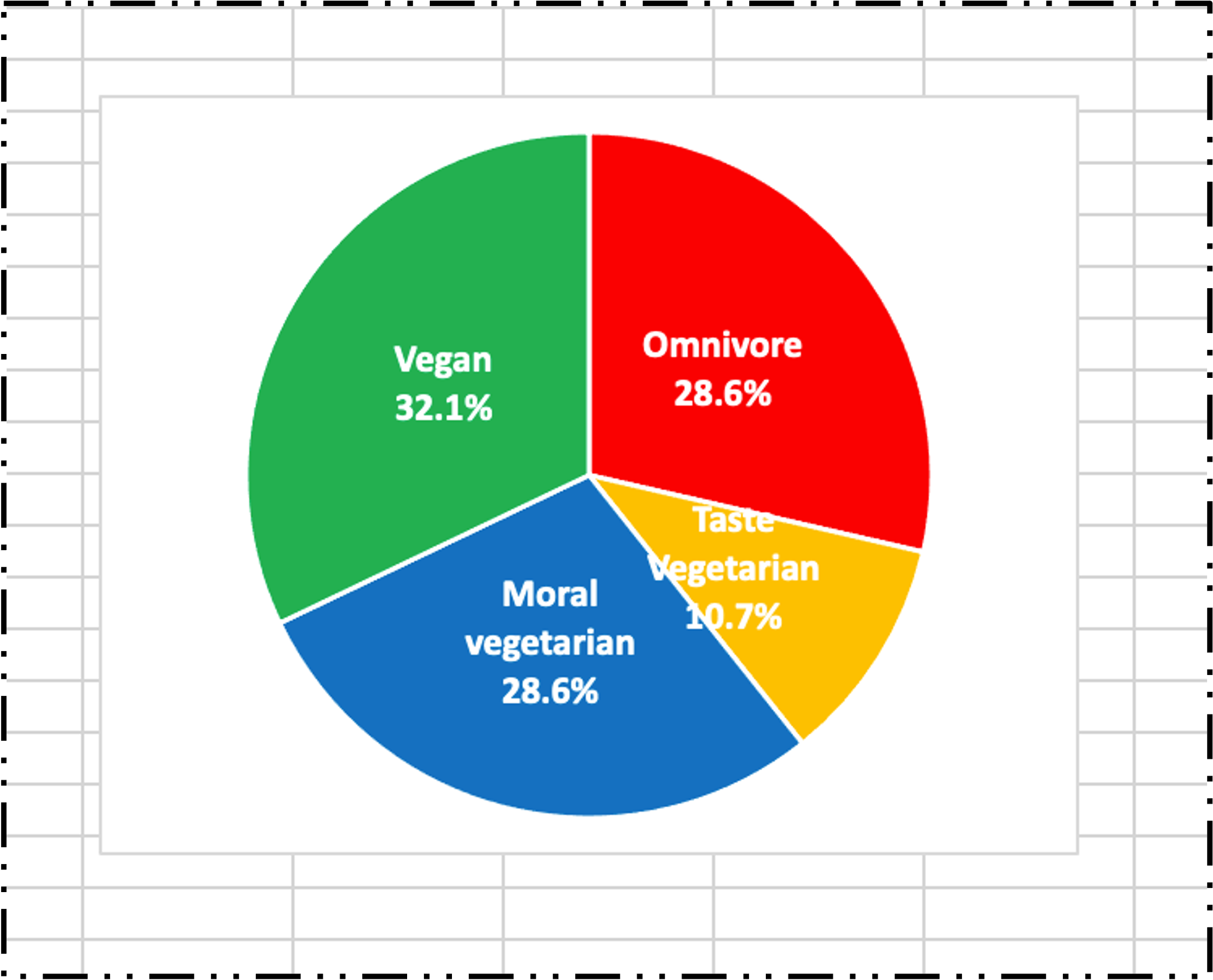
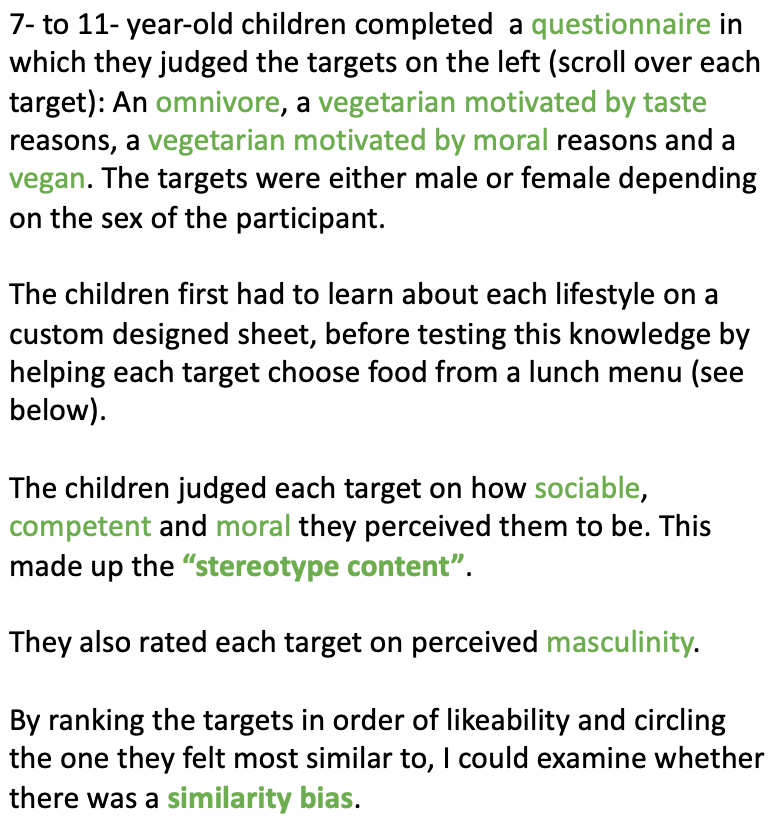

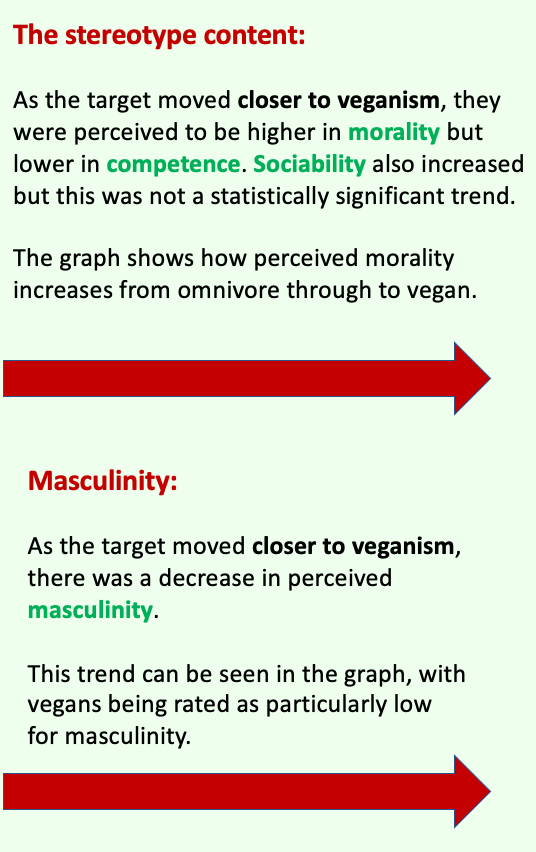





Frequency of particpants rating target as most likeable.































































































































































































































































































































































































































































































































































































































































































































































































































































































































































































































































































































































































































































































































































































































































































































































































































































































































































































































































